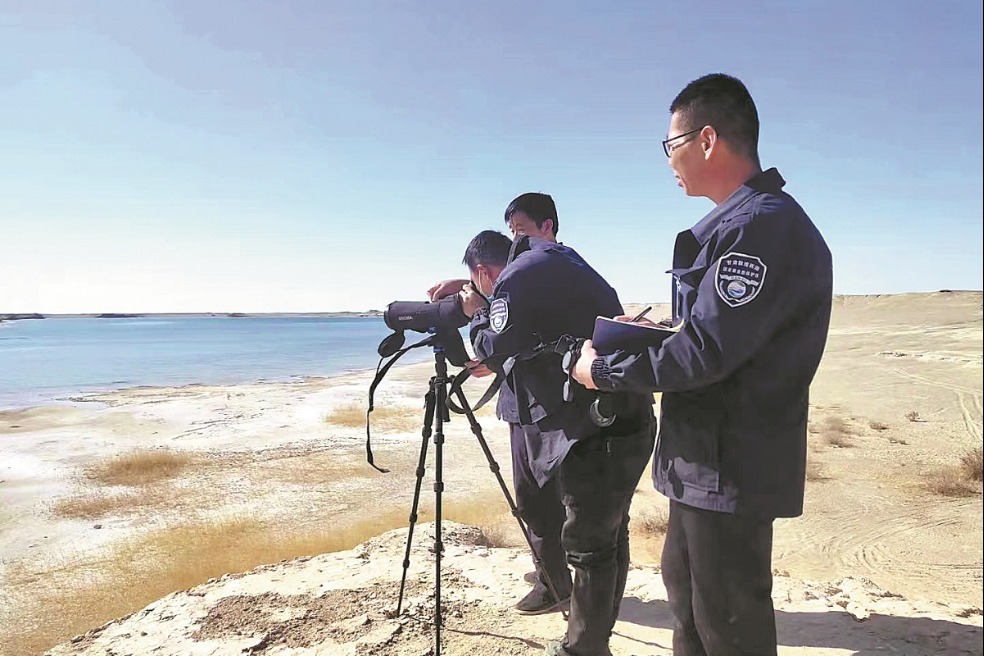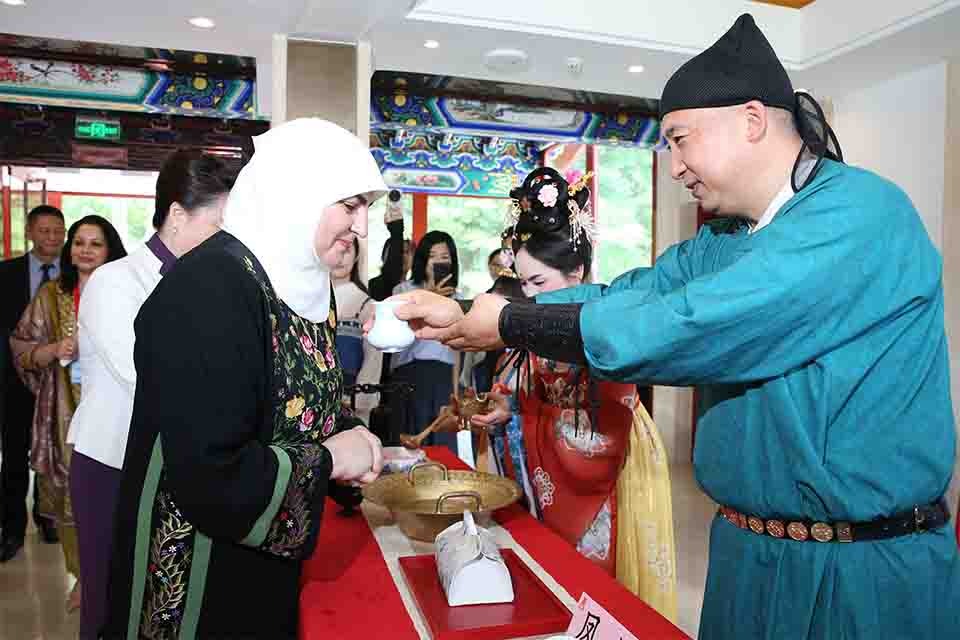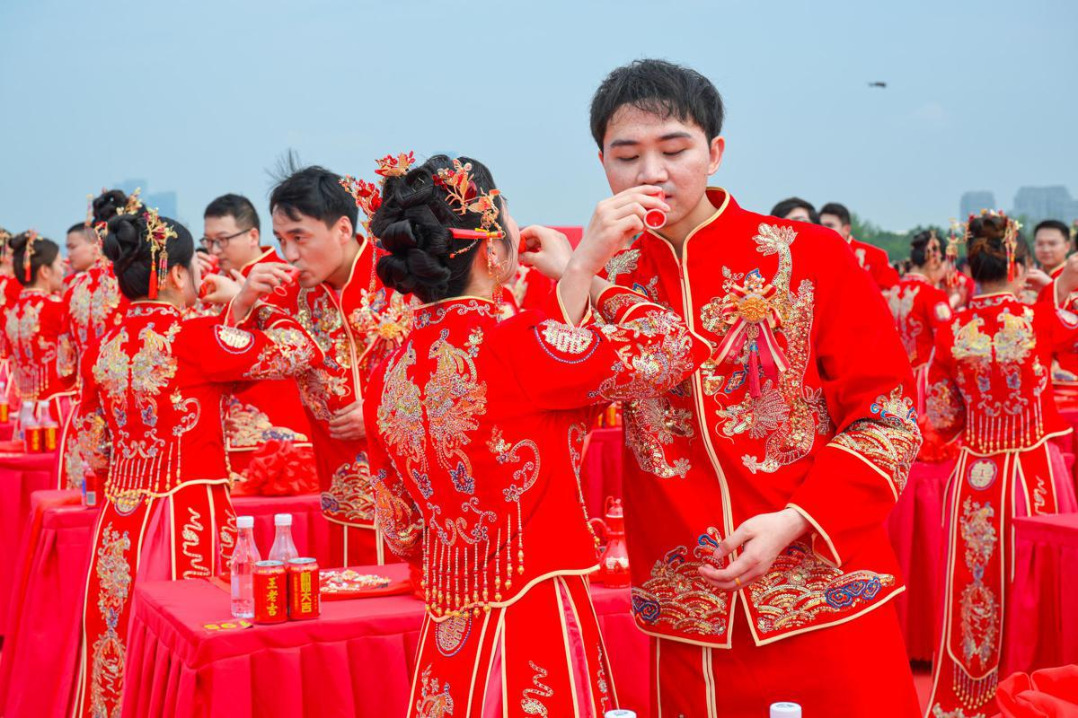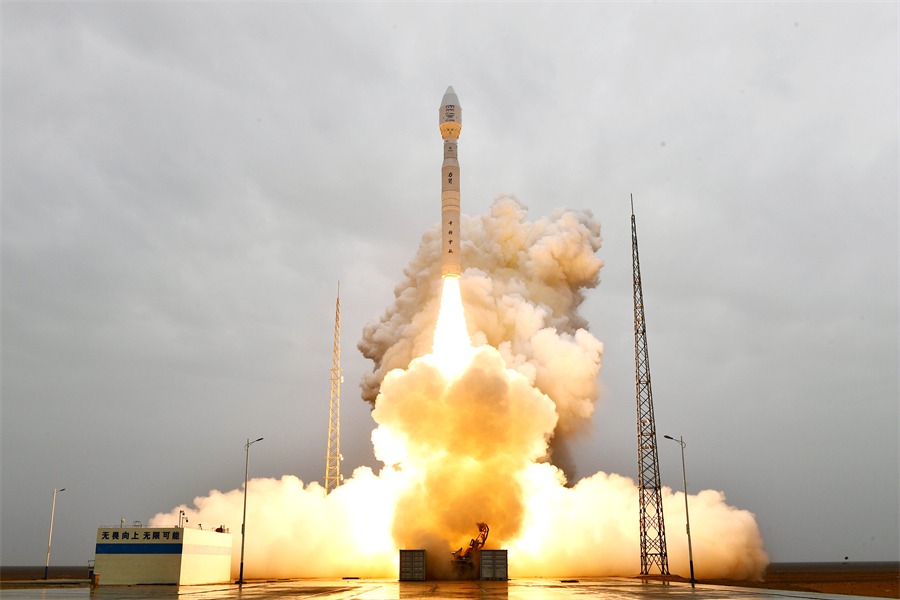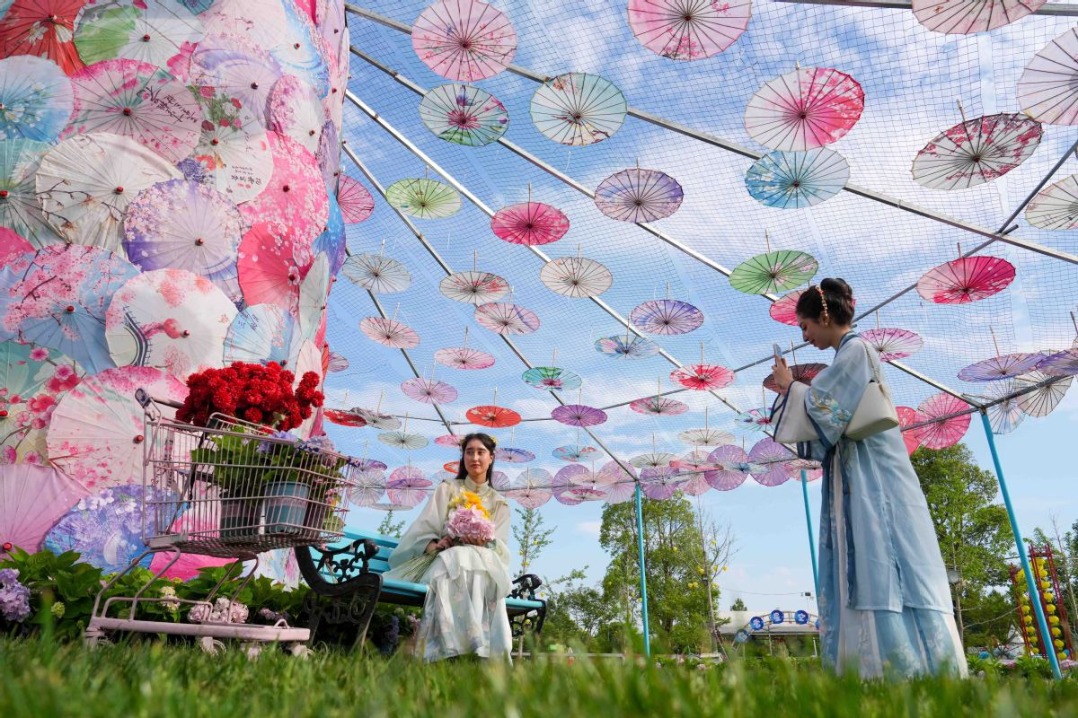What they say

Editor's note: The State Council Information Office invited representatives in the field of natural resources on Wednesday to share their stories and insights on their work.
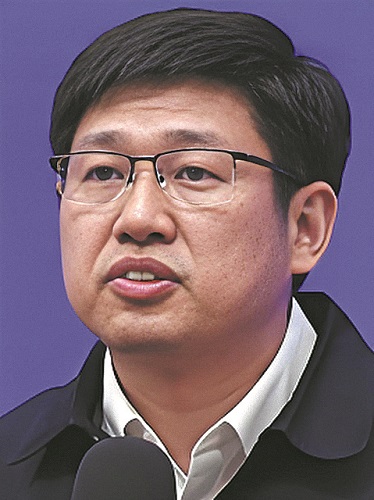
Ding Zhengjiang, head of the sixth geological brigade of the Shandong Provincial Bureau of Geology & Mineral Resources
Mineral resources are the lifeblood of industry, and my job is to conduct geological surveys and diagnose the Earth's structure, much like an "Earth doctor", to discover mineral and energy resources. We have also carried out extensive mine restoration work, having restored over 70 mining pits and re-greened nearly 500 hectares of mountains, transforming abandoned mining areas into ecological parks. These efforts also contribute to the annual sequestration of approximately 3,400 metric tons of carbon, transforming the damaged areas of the Earth into vital ecological "green lungs".
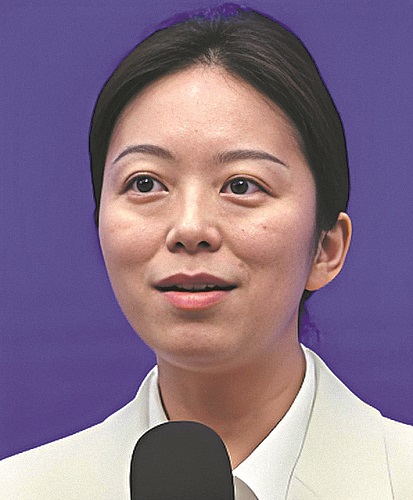
Chen Lin, director of the rural branch of the Shanghai Urban Planning &Design Research Institute
Our focus isn't solely on whether the landscape looks appealing; we also advocate for protecting biodiversity in a natural way. In rural areas, we collaborate with the agricultural science academy to identify land suitable for growing native crops. We also issued action plans for wetland conservation, designating protection zones for small microorganisms in capillary streams, natural ponds, water surfaces and lakes, as well as some wetlands right at residents' doorsteps.
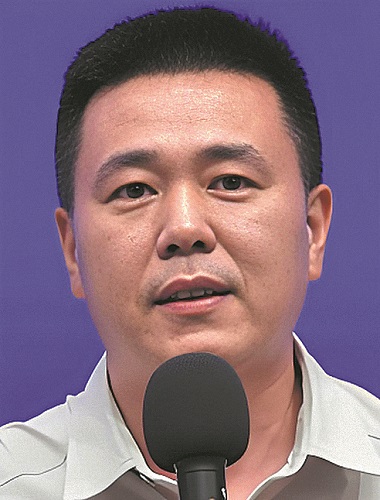
Zhao Yanping, director of the polar vessel management center of the Polar Research Institute of China, and the first captain of the Xuelong 2 icebreaker
Antarctic expeditions are incredibly challenging and sometimes even perilous. During my time as captain of my team, my colleagues and I have faced roaring westerlies, treacherous icebergs and extreme cold that most would find unbearable. We have also had to cope with the loneliness of long sea voyages. Despite these challenges, we find great satisfaction and comfort in our work, as it not only ensures the transport of supplies and personnel for the Antarctic research stations and supports their construction, but also provides international scientists with a mobile sea laboratory in both the Arctic and Antarctic.
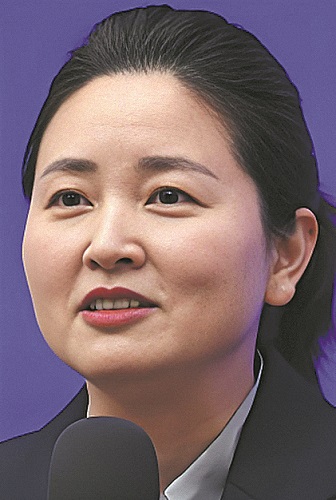
Wang Juanhui, director of the Dong'an village committee in Chongfu town, Tongxiang city, Zhejiang province
Having worked for years at the grassroots level, I've increasingly realized that relying solely on field inspection to protect arable land is far from sufficient; we need to harness the power of technology. In 2022, our village launched a pilot project for smart cropland protection. Each plot of land is assigned a field inspector and monitored by a satellite at the same time. Now, whenever there's potential illegal land use, inspectors receive alerts on their phones, significantly boosting efficiency.
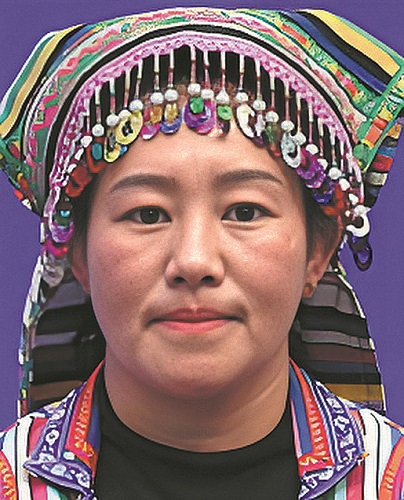
Li Yuhua, forest ranger of Dizhengdang village of Dulongjiang township, Derung-Nu autonomous county of Gongshan, Nujiang Lisu autonomous prefecture, Yunnan province
Our Derung people are known for our unique weaving techniques, ancient craftsmanship and modern color combinations, which is why many call our ethnic group the "Rainbow People".Since the opening of the Gaoligong Mountain Tunnel, more tourists have visited our area, and our Derung blankets have gained popularity. In response, our village established a cooperative to train local women in weaving blankets and blending modern and traditional colors. We've created many shawls, scarves and vests, which are sold not only to local tourists but also internationally.
















